
Alberto: the memories of his students
Silvia Ardagna
Alumna Bocconi 1995
Chief European Economist Barclays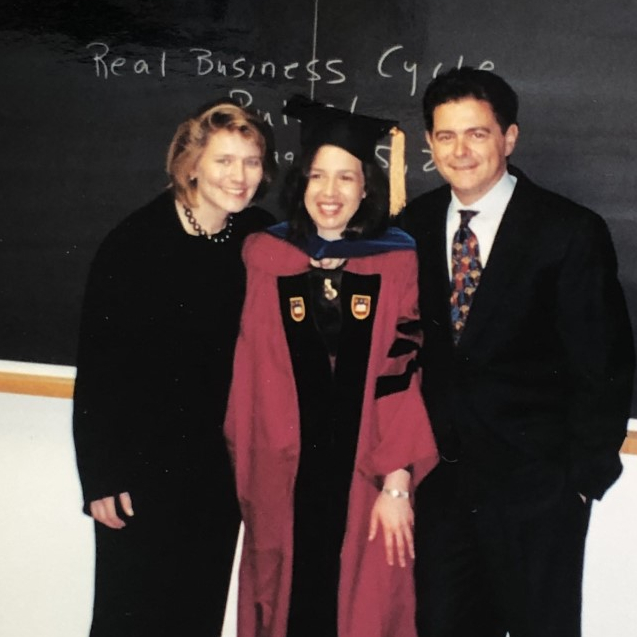 Alberto Alesina: one of the most brilliant minds of the economics profession, the most beautiful soul for a whole generation of his intellectual sons and daughters. His immortal papers and books will train and inspire future generations of economists. My commitment to honor his memory is to nurture young people with the same dedication and generosity Alberto nurtured me. My sorrow is that the new generations can no longer be inspired by the light, depth, curiosity, enthusiasm for research and life that transpired from his eyes. My joy is to be able to quote HIM: "uhm ...(Alberto scratches his hair when thinking about BIG ideas and difficult questions)...this problem is...a trifle", "Stop it with the dawdling", "Don't screw up as you usually do", "Did they cite us?", "When they stop quoting you but quote the content of your work, you know you have made a difference in the world", .... Alberto, I Love You!
Alberto Alesina: one of the most brilliant minds of the economics profession, the most beautiful soul for a whole generation of his intellectual sons and daughters. His immortal papers and books will train and inspire future generations of economists. My commitment to honor his memory is to nurture young people with the same dedication and generosity Alberto nurtured me. My sorrow is that the new generations can no longer be inspired by the light, depth, curiosity, enthusiasm for research and life that transpired from his eyes. My joy is to be able to quote HIM: "uhm ...(Alberto scratches his hair when thinking about BIG ideas and difficult questions)...this problem is...a trifle", "Stop it with the dawdling", "Don't screw up as you usually do", "Did they cite us?", "When they stop quoting you but quote the content of your work, you know you have made a difference in the world", .... Alberto, I Love You!
Michela Carlana
Alumna Bocconi 2018
Assistant Professor of Public Policy Harvard Kennedy School 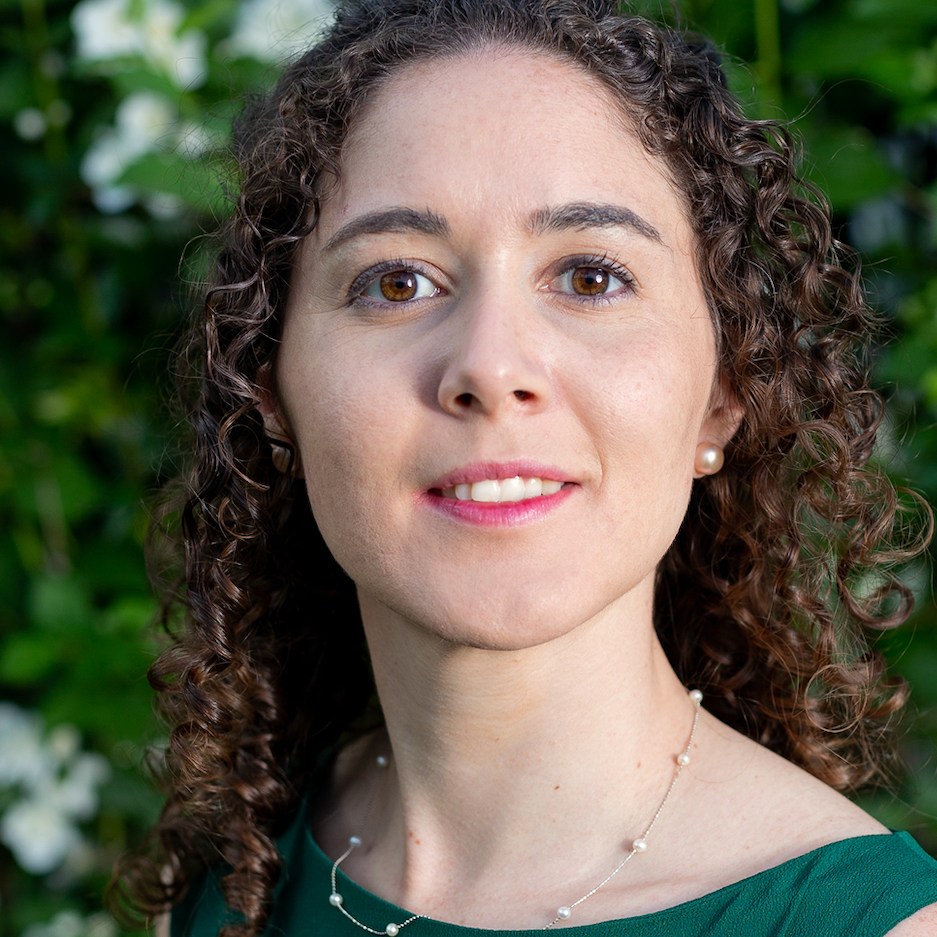 We all need someone that inspires us to do our best. Alberto was a great mentor who was always ready to listen to ideas and made all students feel welcome in the academic community. The first time I met him was during my third year of PhD at Bocconi. During one of his visits in Italy, he came to my lunch seminar and afterwards he stopped to talk with me generously for one hour about my research interests, education and immigration policy. He trusted and believed in people after the first meeting. As for many others, he offered me not only the opportunity to visit Harvard, but he also made me truly feel welcome among his academic family, during the seminars at Harvard, the NBER meetings and dinners with Susan in their home. In our conversations, he pushed me to think about big ideas, beyond the "identification police", often starting with a joke. He was generous and caring and paved the way for generations of economists.
We all need someone that inspires us to do our best. Alberto was a great mentor who was always ready to listen to ideas and made all students feel welcome in the academic community. The first time I met him was during my third year of PhD at Bocconi. During one of his visits in Italy, he came to my lunch seminar and afterwards he stopped to talk with me generously for one hour about my research interests, education and immigration policy. He trusted and believed in people after the first meeting. As for many others, he offered me not only the opportunity to visit Harvard, but he also made me truly feel welcome among his academic family, during the seminars at Harvard, the NBER meetings and dinners with Susan in their home. In our conversations, he pushed me to think about big ideas, beyond the "identification police", often starting with a joke. He was generous and caring and paved the way for generations of economists.
Leonardo D'Amico
Bocconi Alumnus 2018
PhD Candidate in Economics at Harvard University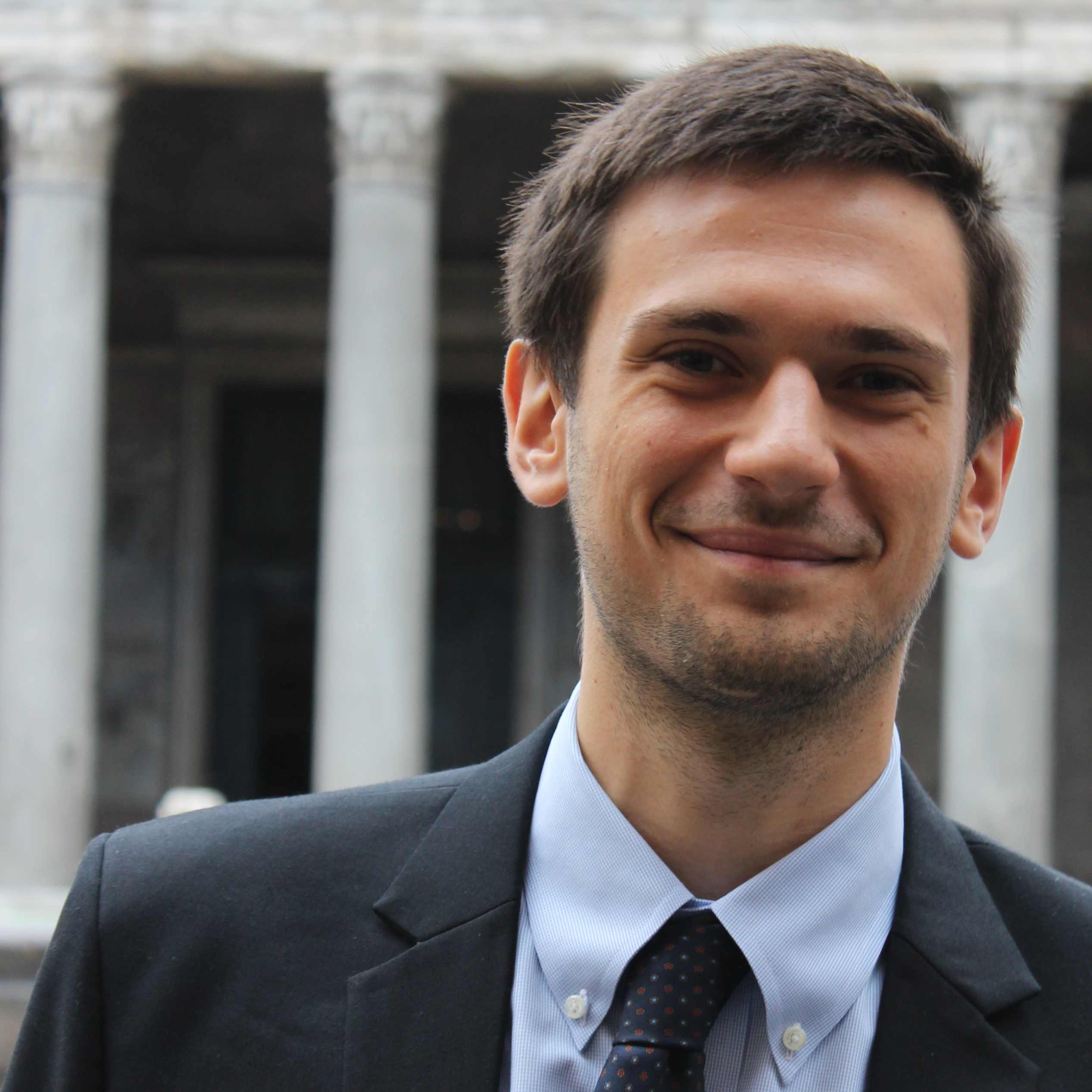 Alberto wasn't just a great mentor -- he was a passionate supporter. He bet on his students, and he stuck to that bet -- in various complementary ways. Intellectually, Alberto pushed you to pursue ambitious questions, to unleash curiosity -- and nothing seemed out of reach after talking to him. And it must be said that he often believed more than us in our ability to answer these questions. When I told him that it seemed difficult to adapt a model to a new context, he would tell me "well if you can't do it..." I must say that I found him unreasonable (and in fact he was not always right) but he gave me the desire to try with confidence and optimism, knowing that in any case his support would not fade.
Alberto wasn't just a great mentor -- he was a passionate supporter. He bet on his students, and he stuck to that bet -- in various complementary ways. Intellectually, Alberto pushed you to pursue ambitious questions, to unleash curiosity -- and nothing seemed out of reach after talking to him. And it must be said that he often believed more than us in our ability to answer these questions. When I told him that it seemed difficult to adapt a model to a new context, he would tell me "well if you can't do it..." I must say that I found him unreasonable (and in fact he was not always right) but he gave me the desire to try with confidence and optimism, knowing that in any case his support would not fade.
You never felt uncomfortable expressing an idea for a project, and Alberto had the patience to lead the conversation to identify the key insight, the simple but interesting mechanism that was to be behind the project. It was his special way of doing research, which he left as an indelible legacy. That way of doing research that makes you feel happy to be an economist.
In addition to being a great advisor, however, Alberto was also a friend who made you feel supported and appreciated. Between jokes -- always accompanied by a squeeze on the arm -- Alberto made it natural to speak transparently, of fears, frustrations, hopes and joys. It made you feel supported as a person, not just as a researcher. It's not difficult to make a portrait of Alberto as a mentor and guide: Alberto was a giant -- a giant who sat firmly in your corner, ready to support you to make you discover the best of yourself.
Enrico Di Gregorio
Alumnus Bocconi 2014
post-doctoral fellow al National Bureau of Economic Research a Cambridge, Massachusetts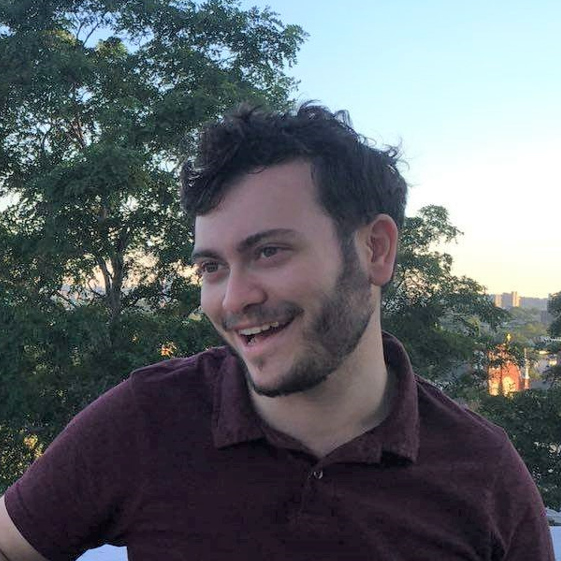 It is quite simple to tell. All the places we came from are standing right behind us, right inside of us. It is the small, God-forsaken town at the edge of the world. It is the high school where we'd let the hours flow by. We went into academia with the hope to matter to some extent, to say what had to be said. To inquire what needed to be inquired.
It is quite simple to tell. All the places we came from are standing right behind us, right inside of us. It is the small, God-forsaken town at the edge of the world. It is the high school where we'd let the hours flow by. We went into academia with the hope to matter to some extent, to say what had to be said. To inquire what needed to be inquired.
Our Places.
But what if we could see through the essence of those questions, as our advisor would always teach.
It would then be easy to see. Alberto, to us, is the place we would like to go.
Since he came to Harvard, just like many of us did, Alberto gracefully straddled two worlds, America and Italy, sometimes incompatible, sometimes one nourishing the other. His wide, encompassing identity, his unwavering passion, his everlasting love, all carved out a home into anyone he'd meet. The size of his nation endogenous to our worth, our companionship. Not with arrogance, with force. He'd just stay in your thoughts with time, until he'd win you over.
Alberto is the place we would want to go, because it just makes sense to declare today that what we wanted from this was just the possibility to say, when the office light switches off and we head out, that the day has been the adventure he and we had been dreaming about.
Alberto is that place because his life was fantastic. It wasn't the nitty gritty grinding through the peer review process, the fear and joy of the class stage, nor the occasional fight and reconciliation with an overzealous discussant. It was fantastic because the simplicity of his work could transform the world.
And it did. From Alberto's place, one could clearly see that reform like revolution was just one project away. That what his colleagues thought was irrelevant could turn into the necessary. That a simple idea that occurs to you like a whisper should never wane in the dead of the night, if you made friends like his who would carry the idea to safety till the break of dawn.
And we can see this clearly of Alberto, though we have not known him as all of you did, with time, with experience, with deep bonds that run in the blood. We see this clearly because his place was easy to find. Alberto's place shines quiet before us as he meant for us to see it.
His Places.
After the first year of his PhD, Alberto found his way back to Italy with a layover in Brussels. During his quick stop there, he made it downtown and sat on a bench, finally taking stock of the adventures he'd been on. Once we'll have found his place, our place, we'll sit with Alberto. He would greet us with a smile. Not a word to add. We'll just concede, as he would, ''What an adventure that was''.
Matteo Ferroni
Alumnus Bocconi 2016
PhD Candidate in Economics presso Boston University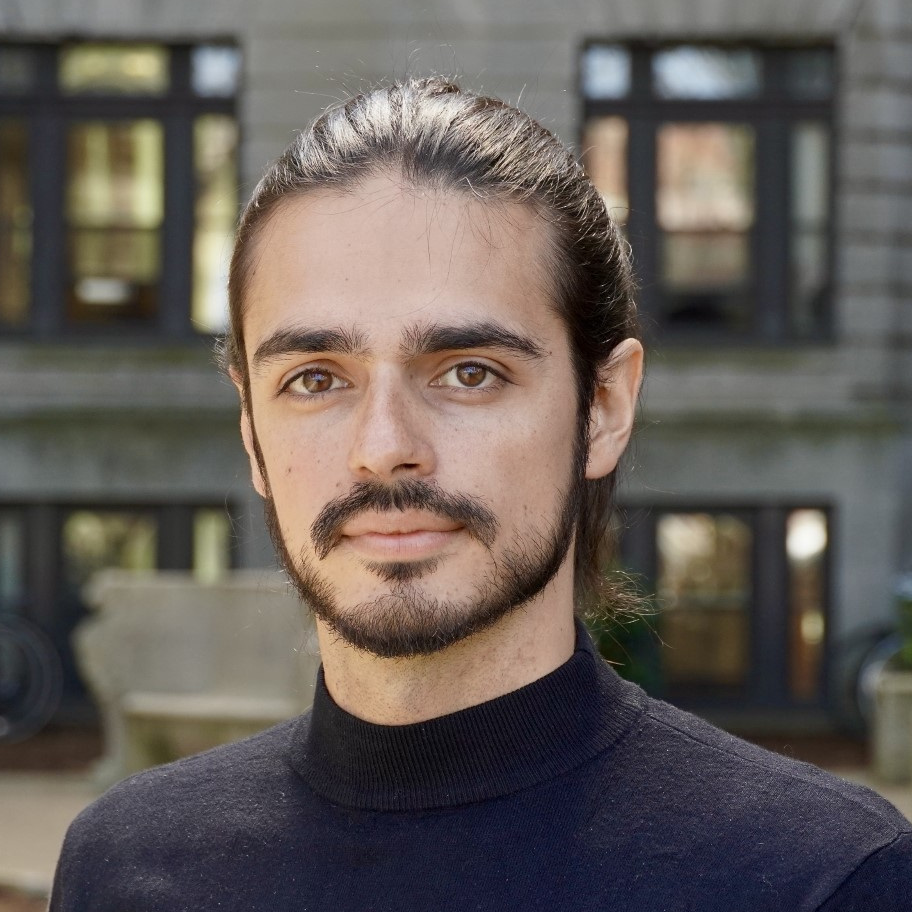 The first time I met Alberto was in 2015. At the time I was still a Master student at Bocconi, and one day he came to attend a seminar of PhD students. With me there were about fifteen other classmates of mine and also for them it was the first time they met Alberto. We were all sitting around a large table and I remember that, before the start of the seminar, he asked us to introduce ourselves all one by one and tell him in which areas of research we were most interested. From that first day I understood how much he cared about the students. The following year, I started working as his assistant and I remember very well how, during the time I was applying for various doctoral programs, he always sent me emails asking to update him on how the process was going. When I was admitted to Boston University, he immediately told me that I absolutely should come to Boston so we could work together and that he would be my advisor. Eventually he not only became my advisor and co-author, but above all my friend. I fondly remember the days we spent at his house working together. He often told me with joy that working on our project made him feel like a student again. And I felt the same, I felt like I was working with a partner and friend of mine, not with a professor of his caliber. I think his ability to establish special relationships with students was precisely due to this, his never having stopped feeling like a student himself. Alberto always found time to talk to the students. Once, I asked him if we
The first time I met Alberto was in 2015. At the time I was still a Master student at Bocconi, and one day he came to attend a seminar of PhD students. With me there were about fifteen other classmates of mine and also for them it was the first time they met Alberto. We were all sitting around a large table and I remember that, before the start of the seminar, he asked us to introduce ourselves all one by one and tell him in which areas of research we were most interested. From that first day I understood how much he cared about the students. The following year, I started working as his assistant and I remember very well how, during the time I was applying for various doctoral programs, he always sent me emails asking to update him on how the process was going. When I was admitted to Boston University, he immediately told me that I absolutely should come to Boston so we could work together and that he would be my advisor. Eventually he not only became my advisor and co-author, but above all my friend. I fondly remember the days we spent at his house working together. He often told me with joy that working on our project made him feel like a student again. And I felt the same, I felt like I was working with a partner and friend of mine, not with a professor of his caliber. I think his ability to establish special relationships with students was precisely due to this, his never having stopped feeling like a student himself. Alberto always found time to talk to the students. Once, I asked him if we
could see each other to update him on my research. I expected that he would give me an appointment in the following days, but instead, he immediately went to his secretary, asked her to move a meeting that he would have started shortly, and we immediately started talking about my project. But he didn't do this only with his students. Over the years I have met many other students who, although from different fields, at least once had gone to talk to him. I am not exaggerating to say that he was probably the professor who interacted with the largest number of students. When the lockdown began, we began to talk regularly on the phone. He called me every two days and we always spent at least twenty minutes chatting about this and that before we started talking about work. He always asked me how I was but often also asked me how other students I knew were doing. He always wanted to make sure we were all okay. For him, we students were always his priority, and his generosity in always being there unconditionally is something we all miss immensely.
Pierfrancesco Mei
Bocconi Alumnus 2018
PhD Candidate in Economics at Harvard University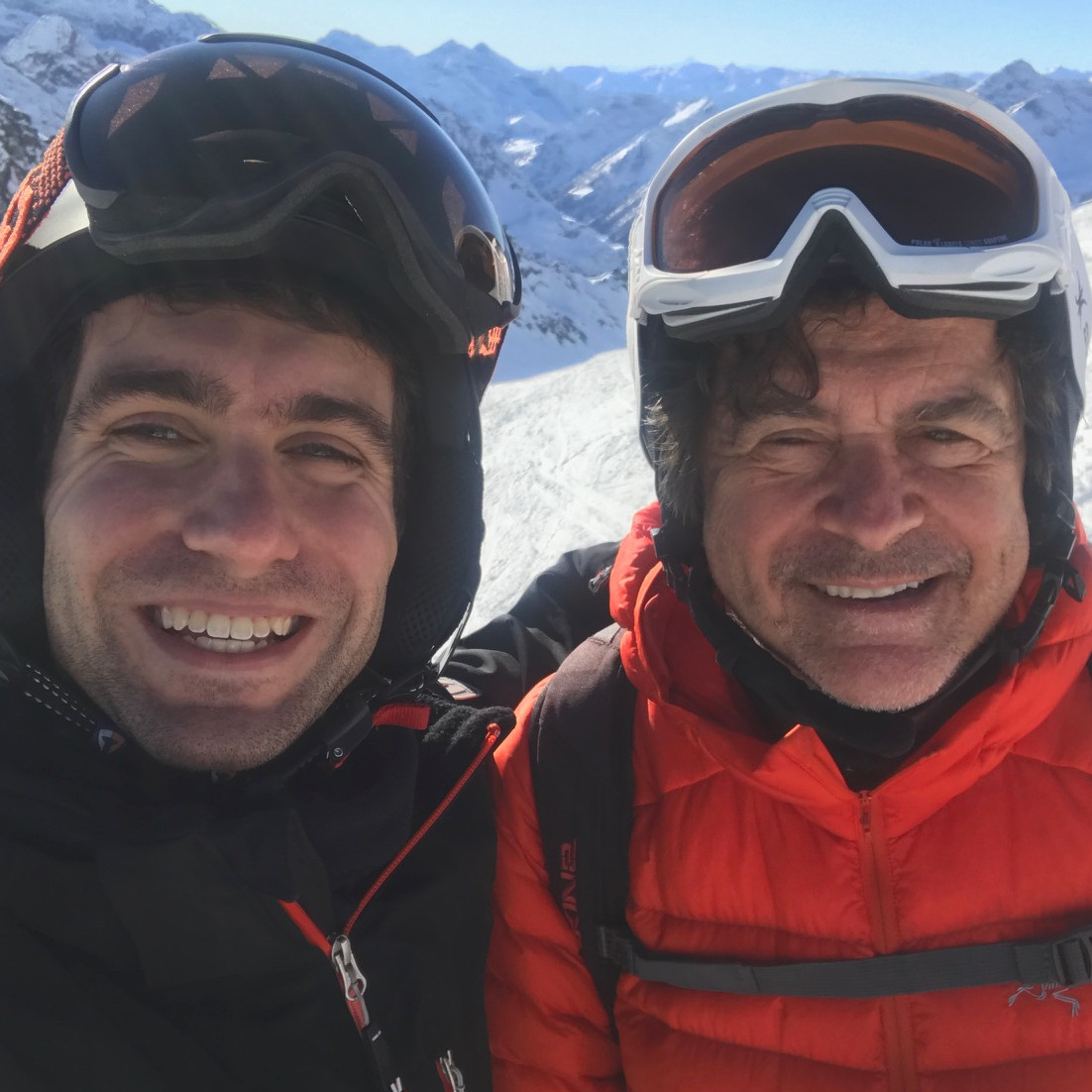 Not a day of my first year at Harvard went by without repeating the same gesture: going up to the second floor of the department and seeing if Alberto's office door was open. I often found myself in his office without even realizing why. The truth is that many times there was no reason, it was the instinct to take you to Alberto. As Francesco Giavazzi, Alberto's lifelong friend, wrote, his humanity was infinite, his passion for research indomitable. His humanity and passion, together with his extraordinary generosity, have made him a teacher, mentor and unique friend for us students. Where else could instinct have led us if not to Alberto, who with a look knew how to give us back joy, serenity and trust? I miss you, Alberto.
Not a day of my first year at Harvard went by without repeating the same gesture: going up to the second floor of the department and seeing if Alberto's office door was open. I often found myself in his office without even realizing why. The truth is that many times there was no reason, it was the instinct to take you to Alberto. As Francesco Giavazzi, Alberto's lifelong friend, wrote, his humanity was infinite, his passion for research indomitable. His humanity and passion, together with his extraordinary generosity, have made him a teacher, mentor and unique friend for us students. Where else could instinct have led us if not to Alberto, who with a look knew how to give us back joy, serenity and trust? I miss you, Alberto.
Armando Miano
Bocconi Alumnus 2015
PhD Candidate in Economics, Harvard University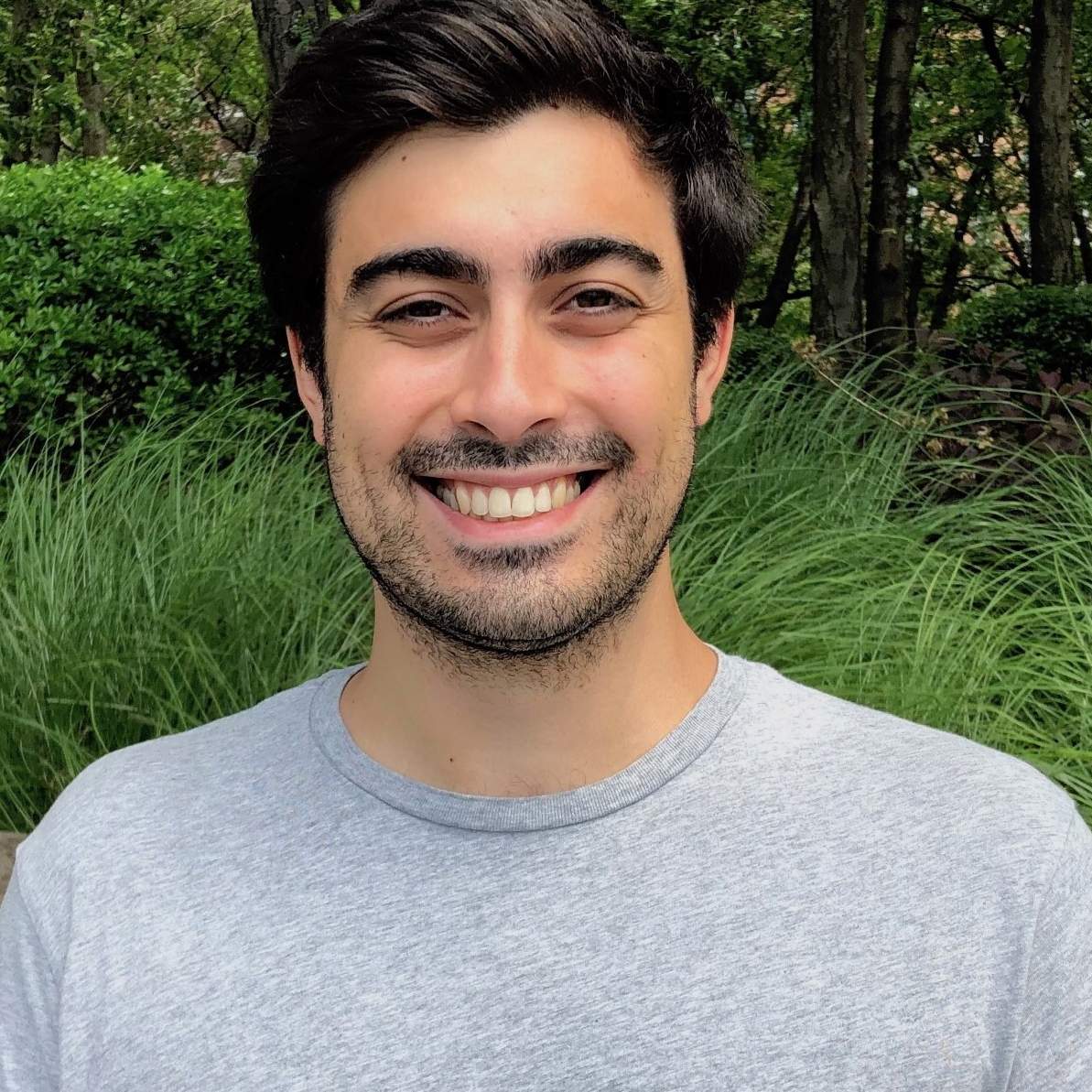 Working with Alberto was a truly enriching experience. I will never cease to be amazed by his humble attitude towards his students and young coauthors. Not only he was always happy to listen to opinions and suggestions, treating you as an equal, he was willing to admit his ignorance and eager to learn from you, even though he was actually the one who was teaching everybody. When we were lost in details or we were having a hard time interpreting certain results, he was the one coming up with the great intuition to simplify and put everything together, always thinking about the big questions.
Working with Alberto was a truly enriching experience. I will never cease to be amazed by his humble attitude towards his students and young coauthors. Not only he was always happy to listen to opinions and suggestions, treating you as an equal, he was willing to admit his ignorance and eager to learn from you, even though he was actually the one who was teaching everybody. When we were lost in details or we were having a hard time interpreting certain results, he was the one coming up with the great intuition to simplify and put everything together, always thinking about the big questions.
Alberto was exigent about research ideas, but once you convinced him of the potential of a project, he supported you with a contagious enthusiasm. He pushed you do your best and motivated you when you experienced a setback. Alberto also cared especially about his students and coauthors life outside of academia. His care towards people made the academic environment more human and fostered a sense of community that still ties his friends and students together.
Giorgio Saponaro
Alumnus Bocconi 2016
PhD Candidate in Economics at Harvard University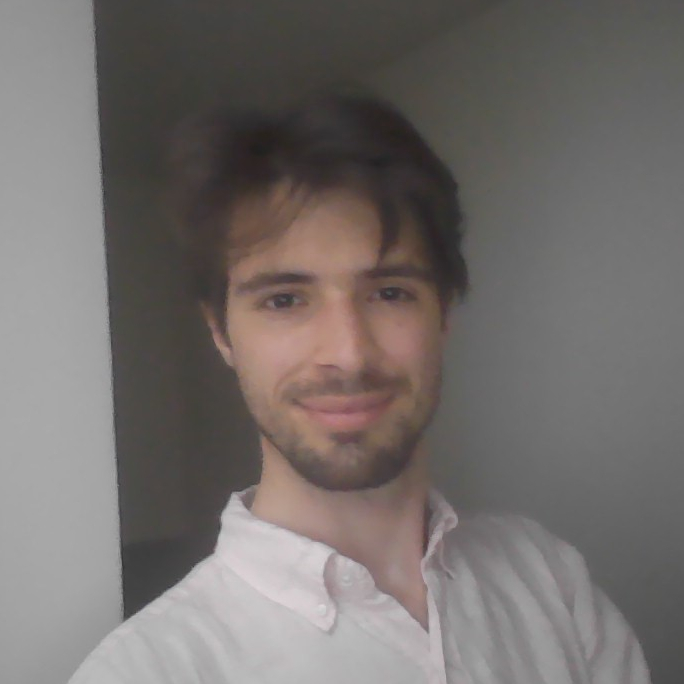 I have had the good fortune to know Alberto since I was a student in a Bachelor program and I could immediately notice his childish spirit that communicated with a look between a question and amusement, in conversations made of unexpected questions, which expected equally direct answers. The natural awe I felt towards a papal academic authority like his was soon replaced by a light-hearted mutual irreverence. In fact, he did not take himself seriously:
I have had the good fortune to know Alberto since I was a student in a Bachelor program and I could immediately notice his childish spirit that communicated with a look between a question and amusement, in conversations made of unexpected questions, which expected equally direct answers. The natural awe I felt towards a papal academic authority like his was soon replaced by a light-hearted mutual irreverence. In fact, he did not take himself seriously:
"Alberto, what courses do you teach in the second semester?"
A: "in the second semester you don't teach: you ski!"
"well if you pass by the Dolomites, let me know"
A: "I wouldn't dream of skiing on those little hills!"
His veiledly comic informality led you to invite him to your home to work because, being always on the road, he had forgotten the keys to his office. He was so used to crossing the Atlantic that he couldn't get out of the Harvard Department parking lot without setting the
navigator, pointing out that "getting out of here is quite complicated." With him you could joke about everything, even what he did not like at all: getting old. Speaking of an article that we were writing together and that we decided not to complete, I told him: "Alberto let's finish this paper before you retire", obtaining a prompt answer "look I will never retire: I will write my best articles when I am eighty". Working and talking to him meant avoiding trivial topics, getting to the heart of the matter with astonishing speed. A problem that you had thought of for afternoons was caught by him in half a minute, despite the fact that he liked to tease himself by claiming that he did not have great empirical technical knowledge and that he knew "the econometrics at fifth grade level" or with outputs such as "this article by Tom Sargent I understand more if I read it backwards." His confidence in your abilities was total, certainly too much, but not blind: "never underestimate my ability to translate complicated things that I do not understand into simple things that I understand" he warned us as we discussed the drafting of his latest book with Carlo Favero and Francesco Giavazzi. And it was true: he found a solution with phenomenal intuition. That way of putting himself on the same level as you, if not below, and treating a problem with frank practicality, a hint of lucid skepticism, is what I try to copy from him when I teach. But without the talent of the original.
Awa Ambra Seck
Alumna 2017
PHD Candidate at Harvard University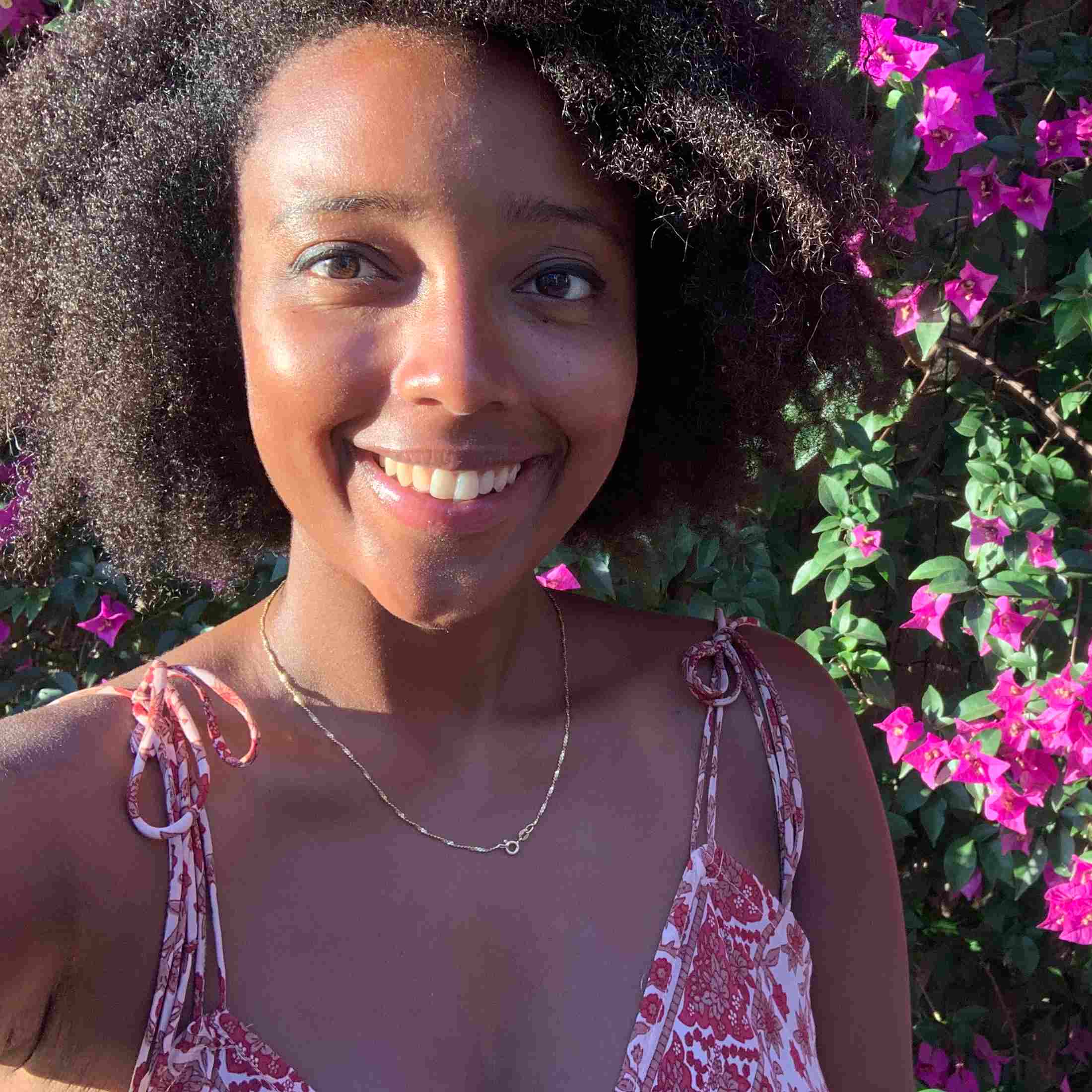 The last time I met with Alberto we were in his office. I sat down on his comfy leather couch, he sat on the chair in front of me and, with a decisive look in his eyes, he gave me serious and concrete advice on how to approach research. I listened and applied it and it was so precious. From then on, we only met virtually and mostly talked about life during and before the pandemic. It was mutual support, so human, so kind, so needed. The last memory I have on him is on zoom: messy hair, a forehead, the top of his glasses, a hand up and a laughter. His laughter, that with his irony made difficult situations easier, seemingly high stakes workshops lighter and every class more interesting. This was Alberto to me, a thoughtful, supportive and immensely kind being. I miss him dearly; we all do.
The last time I met with Alberto we were in his office. I sat down on his comfy leather couch, he sat on the chair in front of me and, with a decisive look in his eyes, he gave me serious and concrete advice on how to approach research. I listened and applied it and it was so precious. From then on, we only met virtually and mostly talked about life during and before the pandemic. It was mutual support, so human, so kind, so needed. The last memory I have on him is on zoom: messy hair, a forehead, the top of his glasses, a hand up and a laughter. His laughter, that with his irony made difficult situations easier, seemingly high stakes workshops lighter and every class more interesting. This was Alberto to me, a thoughtful, supportive and immensely kind being. I miss him dearly; we all do.
Marco Tabellini
Alumnus Bocconi 2011
Assistant professor of Business administration, Harvard University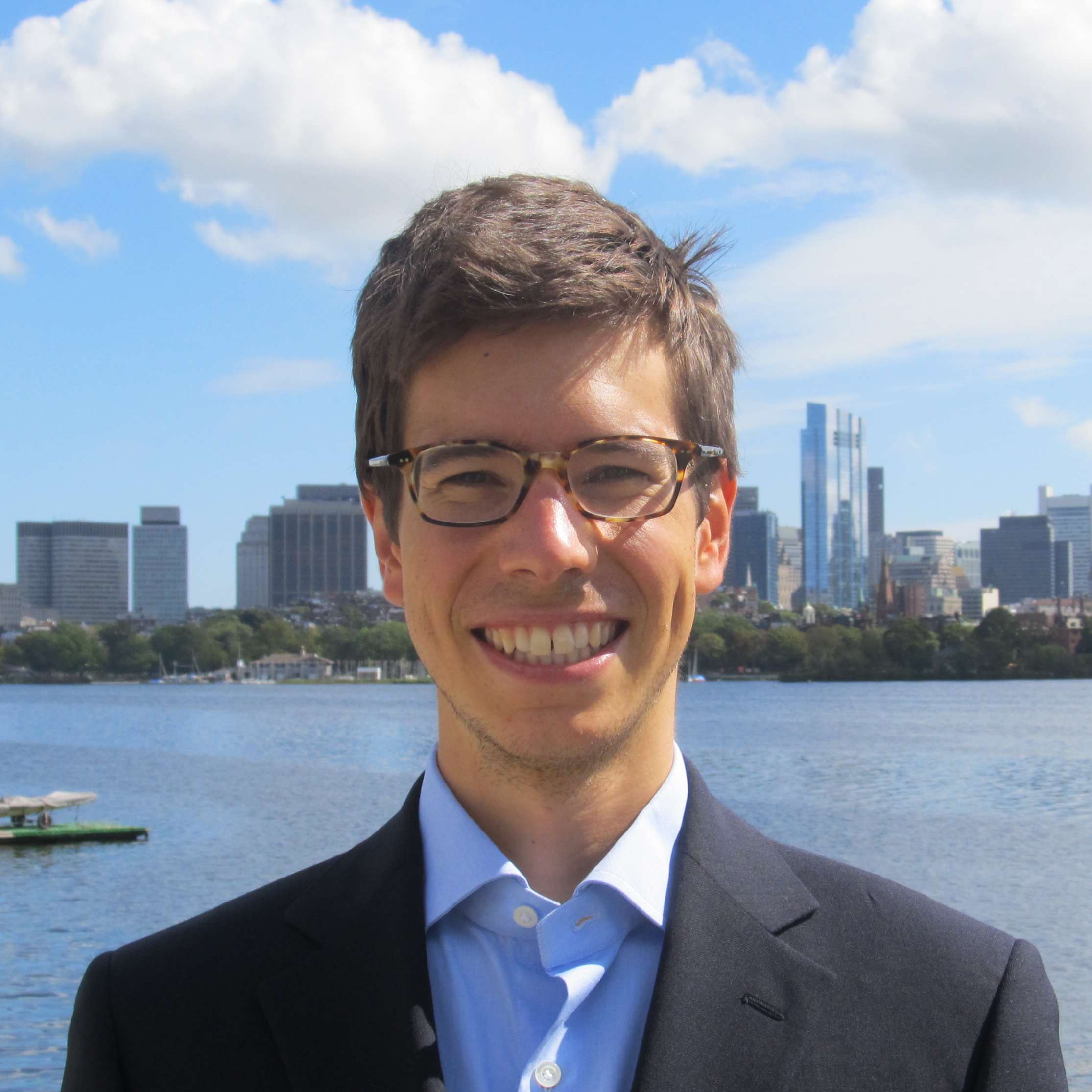 Alberto has been one of the most important people in my life - not only from a professional point of view but also, and above all, personally. Alberto had so many qualities that a book would not be enough to describe them all. I would like to mention one of them in particular: his generosity. Alberto was always available to talk to us, his students, listening to us and always taking our opinions seriously. It was never too late; his door was always open; and even after a day of skiing or class, he would find time for a skype call to discuss new results, a new idea, or simply to listen to our difficulties. It was an unconditional generosity: it didn't matter if you were a student at Harvard, Boston University or the technical college on the river (as Alberto jokingly called MIT). Alberto's generosity was equal to that of Susan, who is the mother of all of us who were his students here in Boston. The door of their house was always open, a bit like that of Alberto's office. How many times have we been invited to dinner with them, staying until late (with Alberto and Susan nodding with sleep because we wouldn't leave), eating like wolves. Thanks to his generosity, Alberto has created a network that will remain, I hope, forever. Alberto and Susan have created a community of young people who were students and who have now grown or are growing up and who will always be united by what Alberto has been and has done for all of us. When, today, I interact with the students, I like to think of Alberto, trying to do at least a thousandth of what he did for me. Alberto will remain forever in my life.
Alberto has been one of the most important people in my life - not only from a professional point of view but also, and above all, personally. Alberto had so many qualities that a book would not be enough to describe them all. I would like to mention one of them in particular: his generosity. Alberto was always available to talk to us, his students, listening to us and always taking our opinions seriously. It was never too late; his door was always open; and even after a day of skiing or class, he would find time for a skype call to discuss new results, a new idea, or simply to listen to our difficulties. It was an unconditional generosity: it didn't matter if you were a student at Harvard, Boston University or the technical college on the river (as Alberto jokingly called MIT). Alberto's generosity was equal to that of Susan, who is the mother of all of us who were his students here in Boston. The door of their house was always open, a bit like that of Alberto's office. How many times have we been invited to dinner with them, staying until late (with Alberto and Susan nodding with sleep because we wouldn't leave), eating like wolves. Thanks to his generosity, Alberto has created a network that will remain, I hope, forever. Alberto and Susan have created a community of young people who were students and who have now grown or are growing up and who will always be united by what Alberto has been and has done for all of us. When, today, I interact with the students, I like to think of Alberto, trying to do at least a thousandth of what he did for me. Alberto will remain forever in my life.
Francesco Trebbi
Alumnus Bocconi 1999
Bernard T. Rocca Jr. Professor of Business and Public Policy, Haas School of Business; University of California Berkeley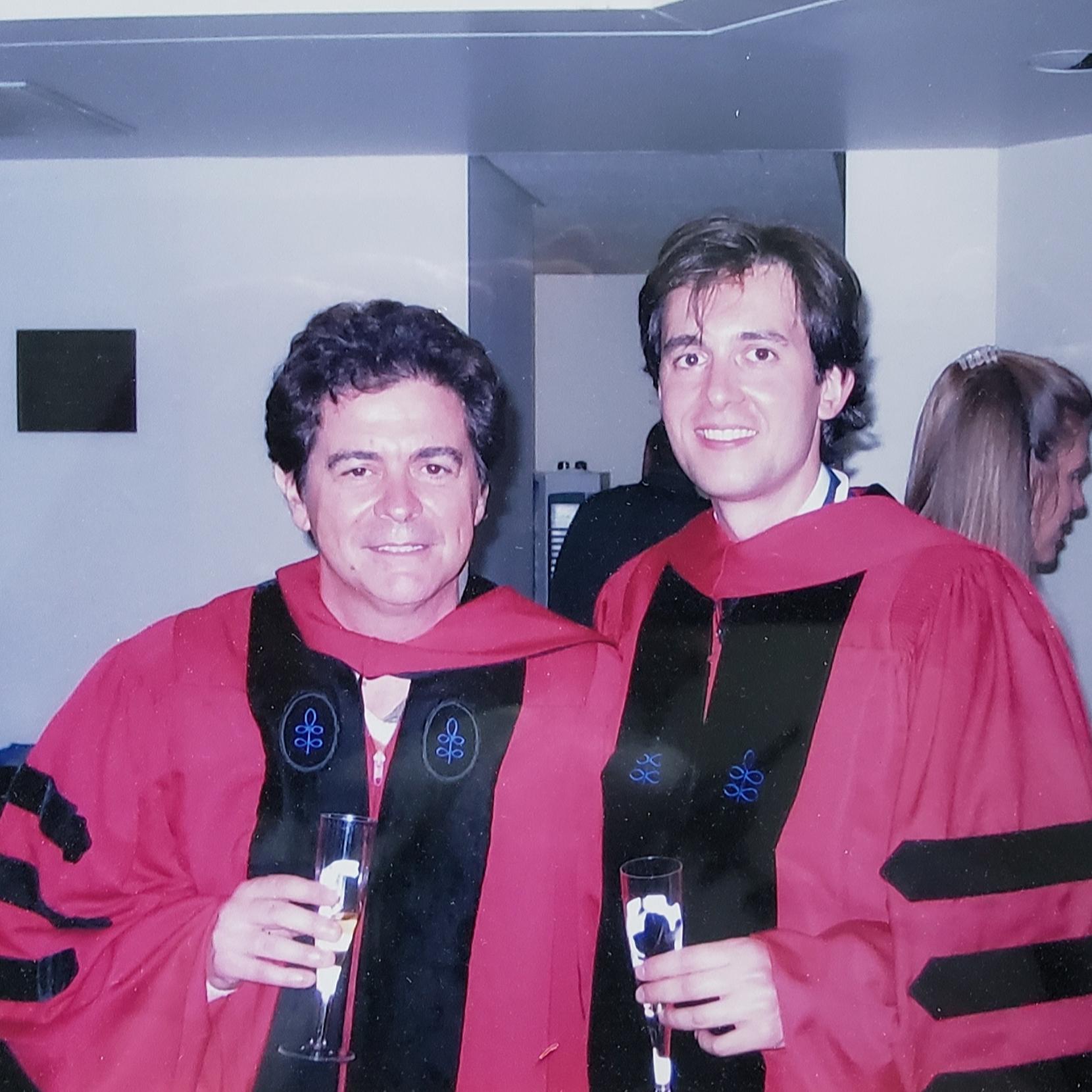 My fondest memory of Alberto will always be how he was as an advisor. His office always had the door open (a rarity at Harvard) and he offered an ability to see interesting aspects in every idea. I never felt in a role that was not on an intellectual par with him - from the beginning of my career and then later in life. Often when I have a struggling student in my office, I think of him. One of the greatest professional satisfactions of my career has been being able to direct the NBER political economy program that he founded, trying to maintain his own intellectual openness, curiosity and originality.
My fondest memory of Alberto will always be how he was as an advisor. His office always had the door open (a rarity at Harvard) and he offered an ability to see interesting aspects in every idea. I never felt in a role that was not on an intellectual par with him - from the beginning of my career and then later in life. Often when I have a struggling student in my office, I think of him. One of the greatest professional satisfactions of my career has been being able to direct the NBER political economy program that he founded, trying to maintain his own intellectual openness, curiosity and originality.